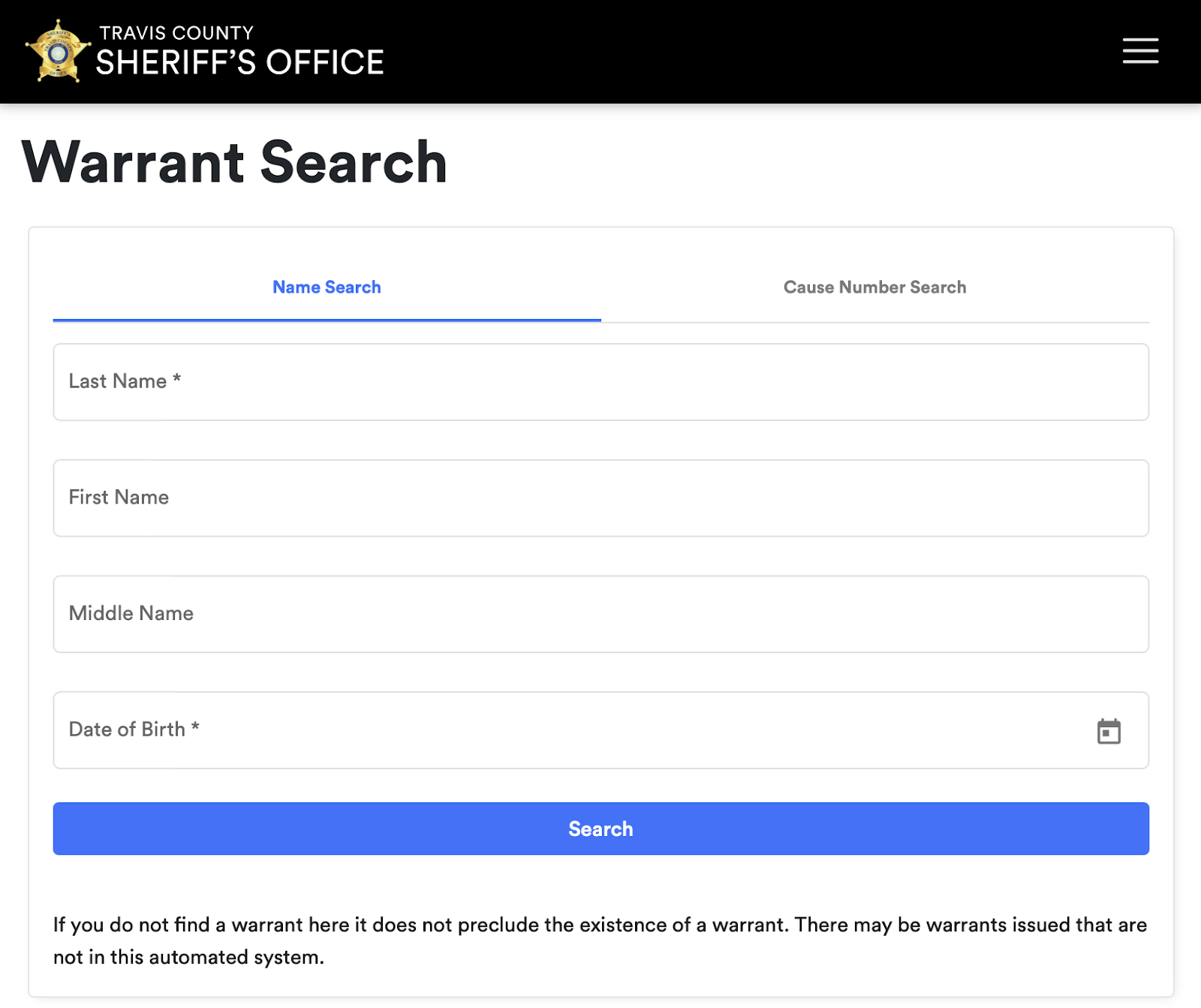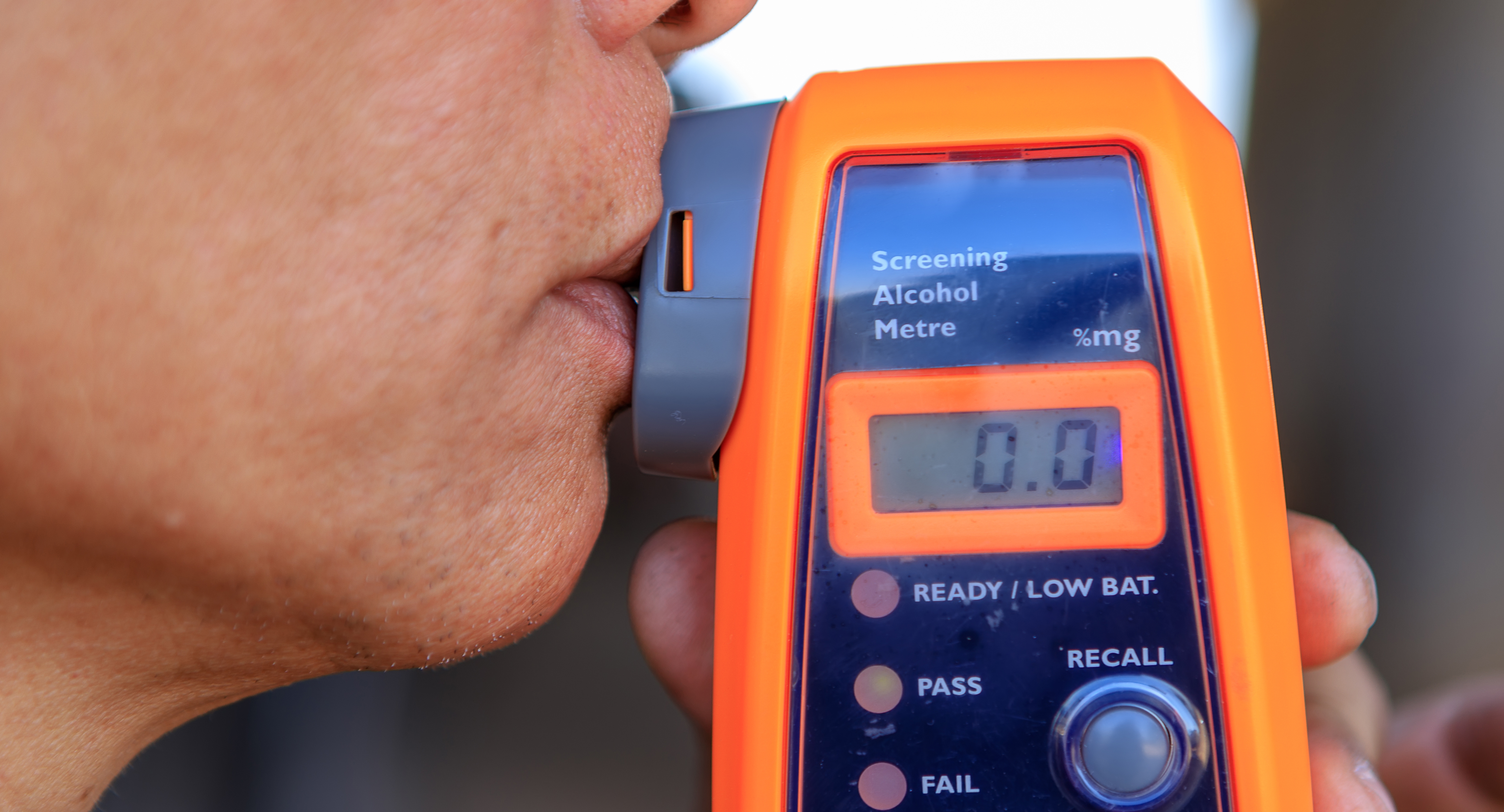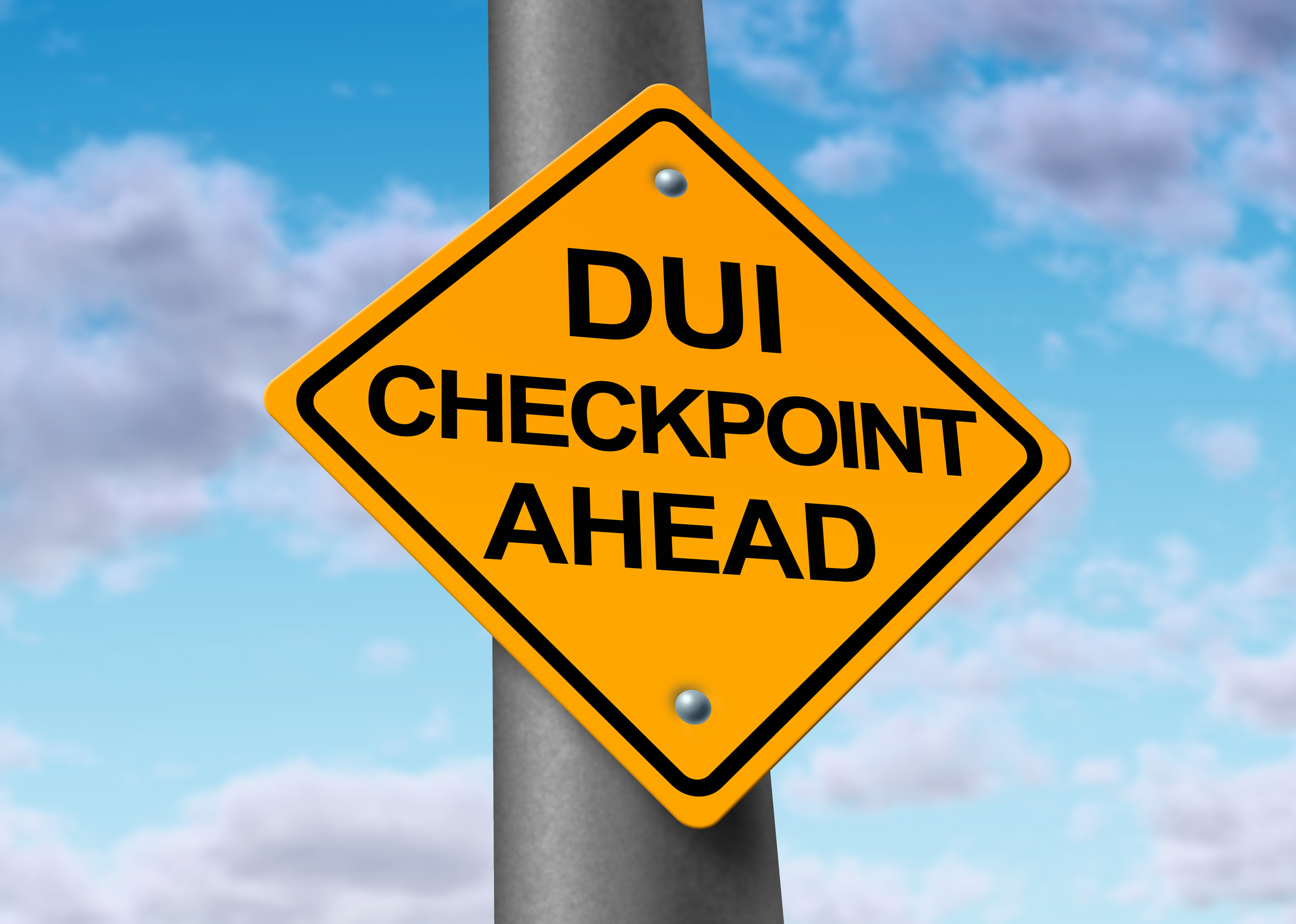- The Travis County Sheriff’s Office offers a searchable online database
- If you’re worried about a warrant in Austin, you can check with the Austin Police Department
- Most people are unaware that a bail bond company will search for active warrants on your behalf, and many don’t charge a fee for this
If you’re worried about a warrant for your arrest – or a friend or family member’s arrest – in Travis County, the simplest way to start is through a web search.
If you’re worried about detection, use a public computer – at a library, for example.
While plenty of websites will help you search, many charge a fee that isn’t disclosed until you’ve wasted time entering all the relevant information. You don’t need to pay for this information. Here’s how to find out for free.
How Do I Find Out if I Have a Warrant in Travis County?
If you’re looking for a warrant – whether for yourself, a friend, or a family member – you likely have a good reason to suspect that something might turn up. You don’t have to commit a serious crime to be named on a warrant. Sometimes, you just need to pay a fine or court fees.
But even these seemingly minor transgressions could lead to an outstanding warrant:
- Keeping an overdue library item
- Missing jury duty (without following up)
- Failing to pay a traffic ticket
- Missing a court appearance without providing proper notification
- Ignoring a civil summons
Cops probably won’t show up to haul you to jail for these offenses, but it’s best to deal with them as soon as possible.
However, if you learn that a warrant for your arrest has been issued, it’s more serious, and you should consult an attorney before taking further action.
Online
The Travis County Sheriff’s Office maintains a searchable online database. To access it, you will need the individual’s first, middle, and last name and date of birth. Search at tcsheriff.org.

Austin Police Department
If a warrant has been issued within the city of Austin, you can use an online search tool provided by the Austin Police Department at austintexas.gov. However, this will only include APD warrants.
Travis County District Clerk’s Office
The district clerk’s office provides a portal at traviscountytx gov that allows you to access public court records, including information about active warrants. The database includes:
- Family and civil court cases since 2006
- Criminal cases from 2008 to date
Travis County Constable, Precinct 5
For assistance with criminal warrants involving family violence and child support, contact the Warrants Unit Command at (512) 854-9100 or online at constable5.com.
Please be aware that not all active warrants may appear in these online systems immediately. If you cannot find information online but suspect there may be an active warrant, it’s advisable to contact the relevant law enforcement agency directly or consult with a legal professional.
Call a Bail Bond Company
Most people aren’t aware that bail bond companies will often run a warrant check for free, hoping they can get your business if a warrant arises. This will save you time searching, and you don’t have to worry about finding someone else to call on your behalf. It will also save you the money you’d have to pay for a third-party service.
Ask Your Lawyer
If you already have an attorney, he or she will help you search for outstanding warrants.
Michael & Associates is a criminal defense law firm that defends clients against DWI, assault, theft, drug possession, and all other criminal charges in the Austin area. Get a free case review today.
Third-Party Websites
Several third-party websites will help you search for warrants. However, most of these sites charge a fee for their assistance and won’t disclose the cost until you’ve wasted time entering your personal information. They also won’t save you any time or effort – you’ll have to provide the same information that you’d enter at one of the county-run websites.
Third-party services include CriminalRecords.com, TruthFinder, and reviewpublicrecords.com.
How to Request a Copy of Your Criminal Record
Municipalities in Travis County typically make warrants publicly accessible, especially when they involve misdemeanor offenses, fines, and/or court fees.
However, if you can’t find the information locally or are afraid to search, you can request a copy of your criminal record through the Texas Department of Public Safety (DPS) website or by email at [email protected].
However, some information may be redacted, and receiving it could take several weeks.
Sealed Warrants
Certain warrants may not made accessible to the public. Warrants can be sealed for several reasons, including to protect the identity of minors or due to ongoing investigations. This can include:
- Juvenile warrants: Arrest warrants involving minors are often confidential to protect their identities.
- Domestic violence cases: Warrants related to domestic or family violence may be sealed for the victims’ protection.
- Witness protection cases: These warrants may be kept confidential to ensure witnesses’ safety.
- Sensitive investigations: If an investigation involves a sensitive topic, such as organized crime or terrorism, warrants may be sealed to protect the investigation.
- Medical or mental health issues: If someone is suffering from medical or mental health issues, warrants may be sealed to protect their privacy.
Types of Warrants and What They Mean
Warrants serve different purposes, and there are several different types:
- Arrest warrant: This is a written order from a magistrate or judge. It is issued when a law enforcement officer produces an affidavit showing that an individual is believed to have committed an offense. As the name suggests, an arrest warrant authorizes the police to arrest a suspect and take that person into custody.
- Bench warrant: This is a court order to arrest a defendant who hasn’t appeared for a scheduled court hearing. Bench warrants are issued to the police to arrest a person and bring them to the court.
- Blue warrants: These are issued for parolees suspected of violating one or more of their parole terms.
- Capias: These are issued by a judge or a clerk on a judge’s order. They’re similar to arrest warrants, but a capias is issued after the case against you has started – after bail has been set or before a trial begins. A capias may also be issued if a verdict is announced when the defendant is absent.
- Capias Pro Fine: These are issued after a judgment to enforce the payment of unpaid fines and court costs.
- Child support arrest warrant: A judge or magistrate issues these in civil child support cases when a parent fails to appear in court for a child support hearing. You will be detained until all court-ordered payments have been made.
- Failure to pay warrant: This means you owe a fine, court fee, or other payment ordered by the court.
- Search warrant: This is an order from a magistrate authorizing a law enforcement officer to search someone or their property and seize incriminating material as evidence.
More Commonly Asked Questions
Do Warrants Expire in Travis County?
No. If a warrant has already been issued, no statute of limitations exists. They will remain active until one of two things happens:
- You’re arrested
- A judge revokes the warrant
This means you cannot wait for a warrant to expire. If it involves paying a fine or fee, your best bet is to resolve it quickly. Contact an attorney to review your options if it’s an arrest warrant.
How Do You Resolve an Arrest Warrant in Travis County?
Sometimes, you just need to pay a fee to resolve a warrant. If you owe it to a municipality, they may even offer a “warrant roundup,” reducing the fee if you pay it within a set timetable (or make payment arrangements during this time).
However, dealing with an arrest warrant gets more complicated, and there are a few ways to resolve it. They include:
- Turn yourself in and post bail
- Hire a lawyer to negotiate with the court
- Have your lawyer post bond on your behalf
You may surrender at the Travis County Correctional Complex, which is located at 3614 Bill Price Road, Del Valle, TX 78617.
Don’t turn yourself in until you’ve discussed your case with an experienced criminal attorney. They will review your options and let you know the potential ramifications of turning yourself in.
More Austin-Area Resources
How to get someone out of jail in Travis County
How to find an inmate in Travis County




